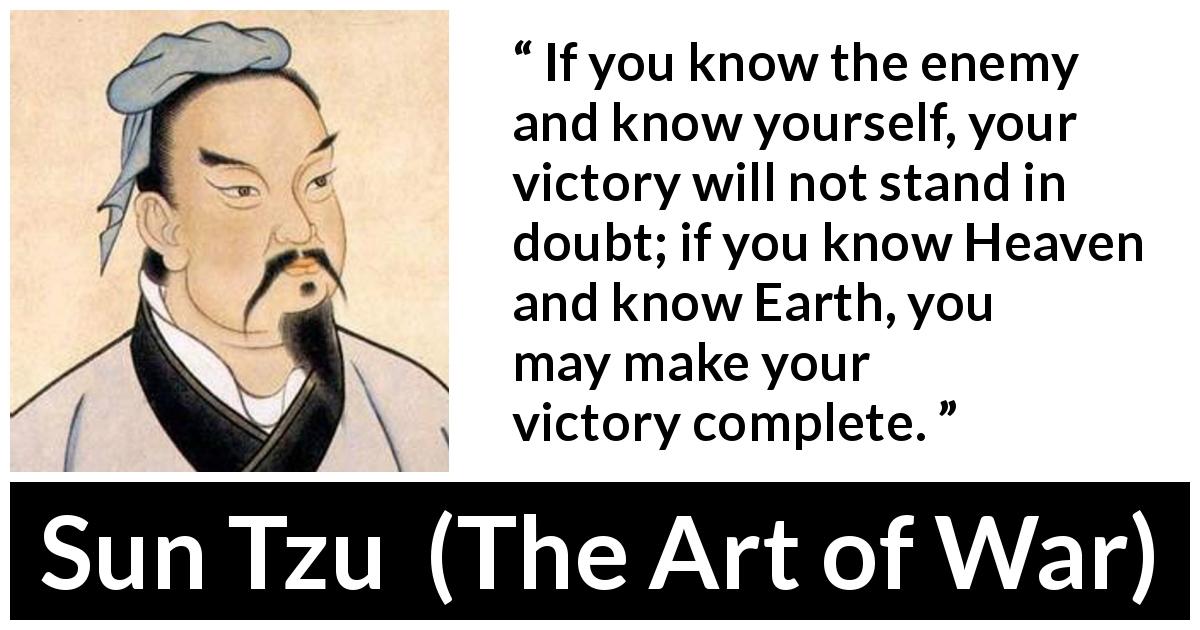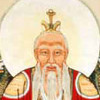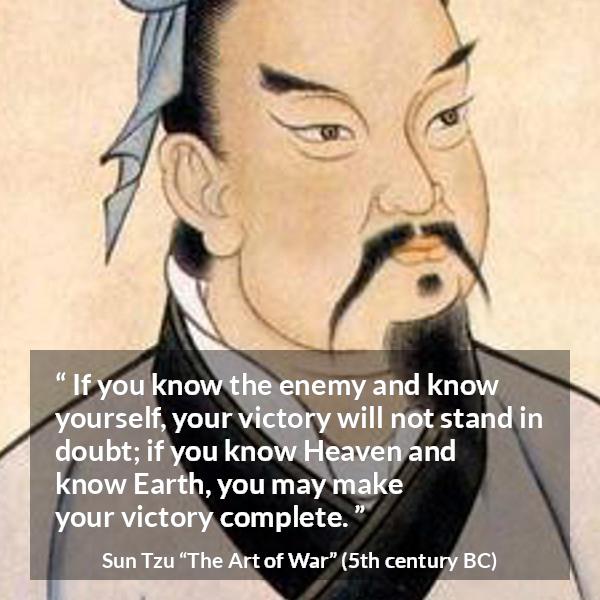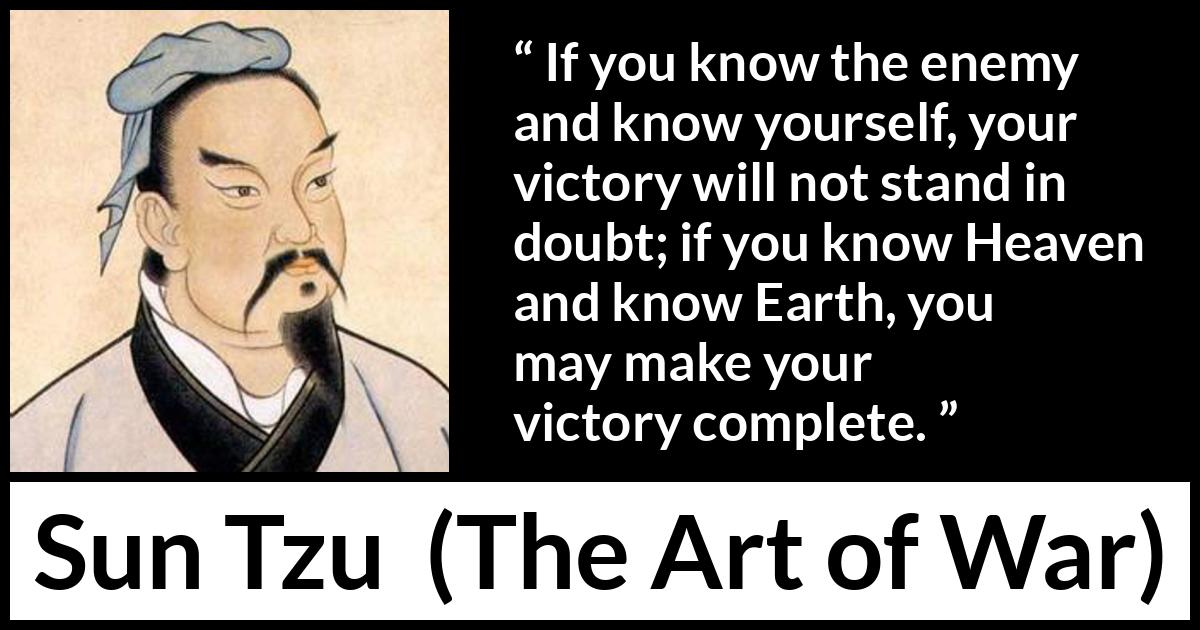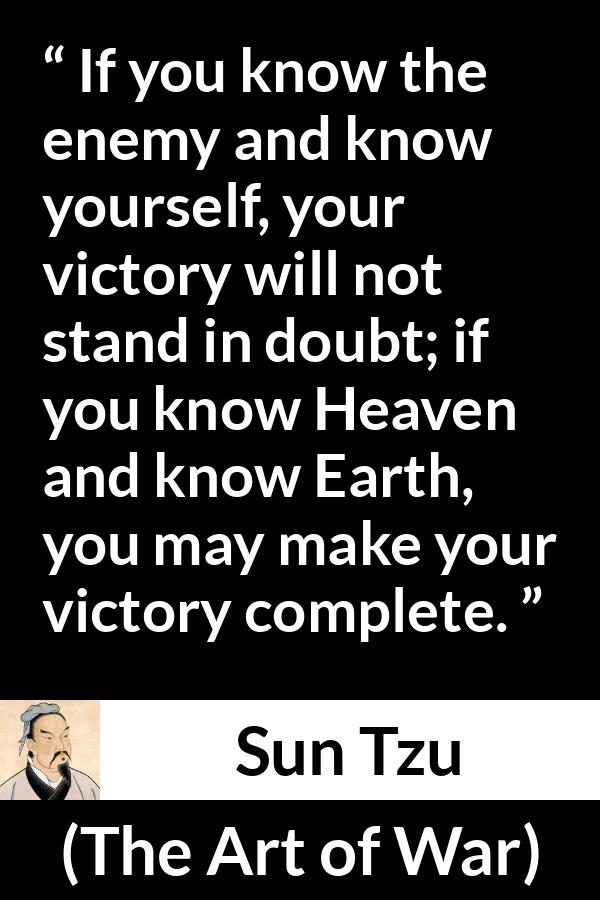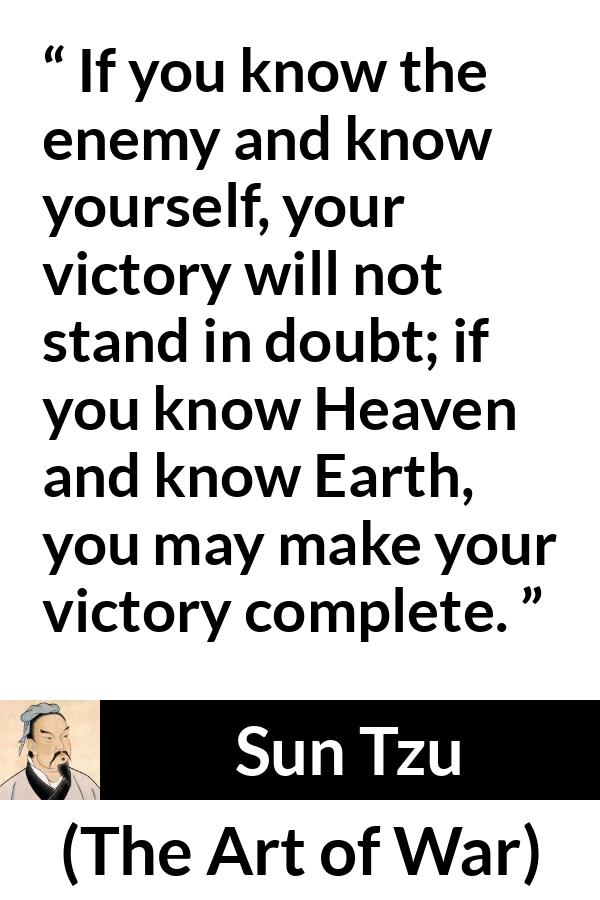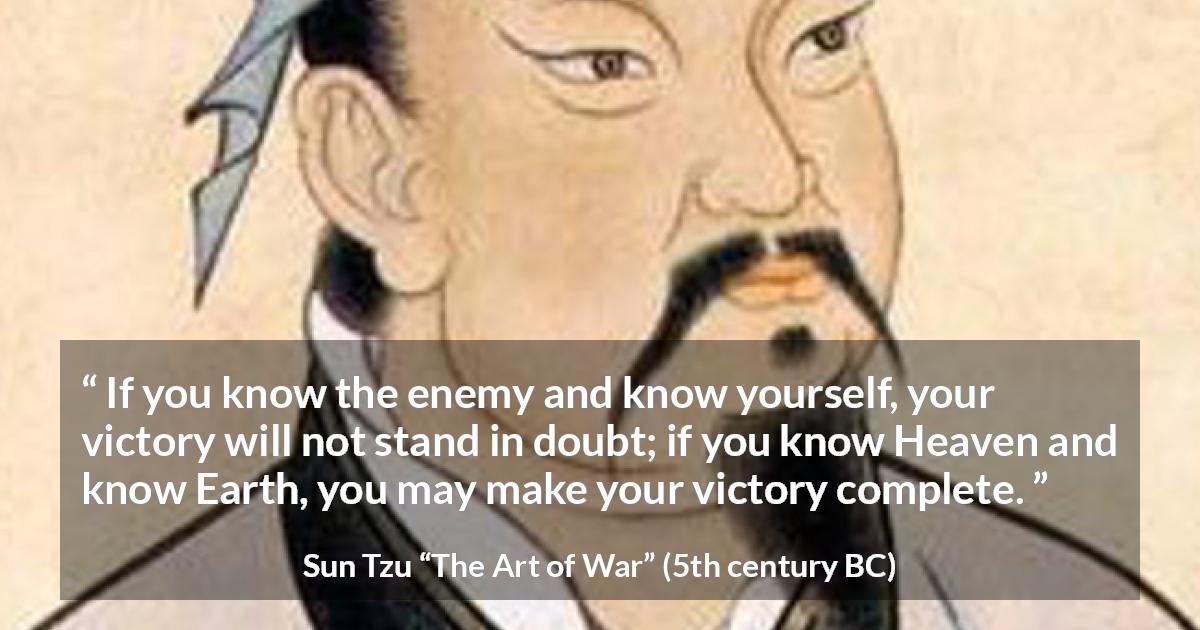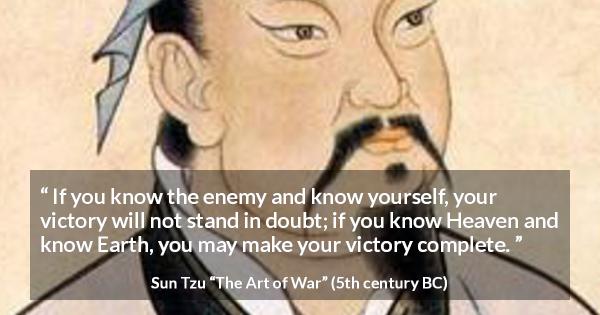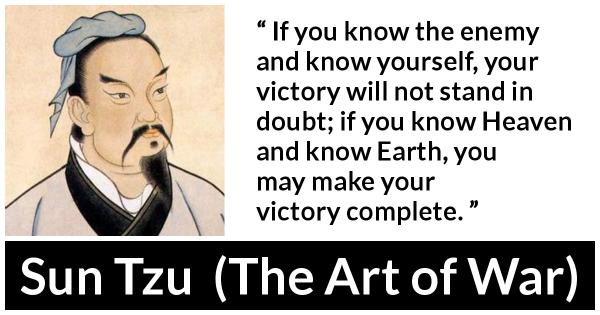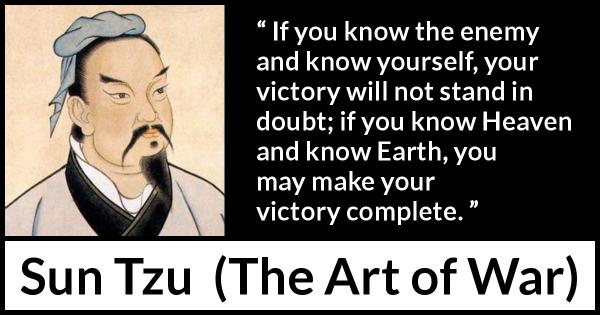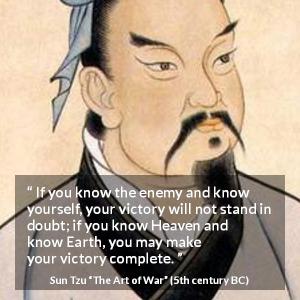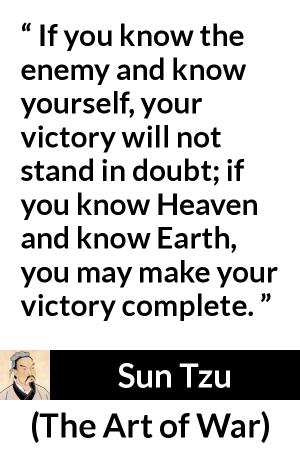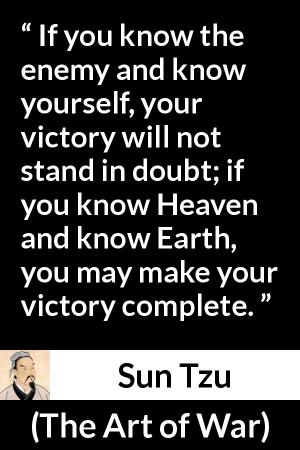“ If you know the enemy and know yourself, your victory will not stand in doubt; if you know Heaven and know Earth, you may make your victory complete. ”
Sun Tzu, The Art of War (5th century BC). copy citation
| Author | Sun Tzu |
|---|---|
| Source | The Art of War |
| Topic | knowledge victory enemy |
| Date | 5th century BC |
| Language | English |
| Reference | |
| Note | Translated by Lionel Giles |
| Weblink | http://www.gutenberg.org/files/17405/17405-h/17405-h.htm |
Context
“If we know that the enemy is open to attack, and also know that our men are in a condition to attack, but are unaware that the nature of the ground makes fighting impracticable, we have still gone only halfway towards victory.
30. Hence the experienced soldier, once in motion, is never bewildered; once he has broken camp, he is never at a loss.
31. Hence the saying: If you know the enemy and know yourself, your victory will not stand in doubt; if you know Heaven and know Earth, you may make your victory complete.
XI. THE NINE SITUATIONS
1. Sun Tzu said: The art of war recognizes nine varieties of ground: (1) Dispersive ground; (2) facile ground; (3) contentious ground; (4) open ground; (5) ground of intersecting highways; (6) serious ground; (7) difficult ground; (8) hemmed-in ground; (9) desperate ground.” source
30. Hence the experienced soldier, once in motion, is never bewildered; once he has broken camp, he is never at a loss.
31. Hence the saying: If you know the enemy and know yourself, your victory will not stand in doubt; if you know Heaven and know Earth, you may make your victory complete.
XI. THE NINE SITUATIONS
1. Sun Tzu said: The art of war recognizes nine varieties of ground: (1) Dispersive ground; (2) facile ground; (3) contentious ground; (4) open ground; (5) ground of intersecting highways; (6) serious ground; (7) difficult ground; (8) hemmed-in ground; (9) desperate ground.” source
